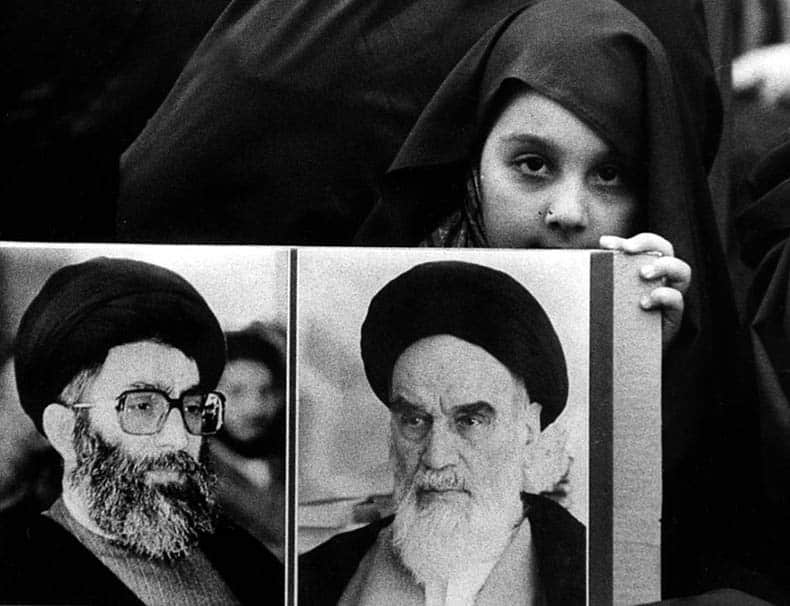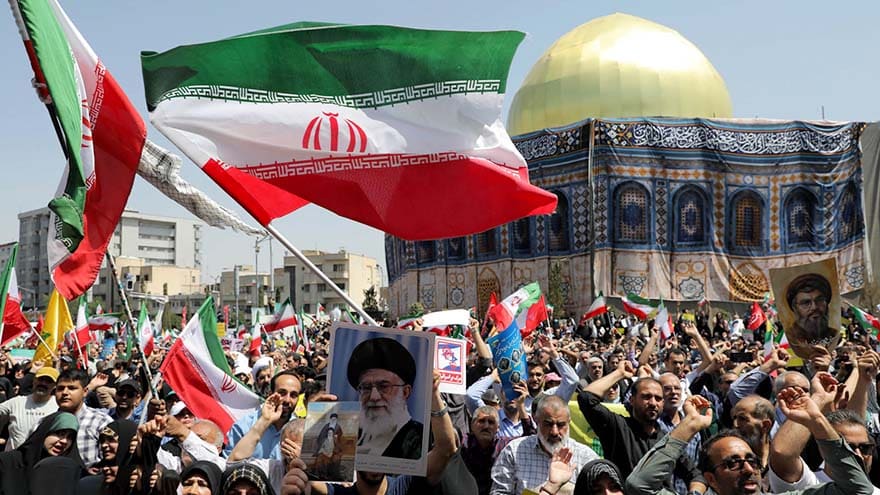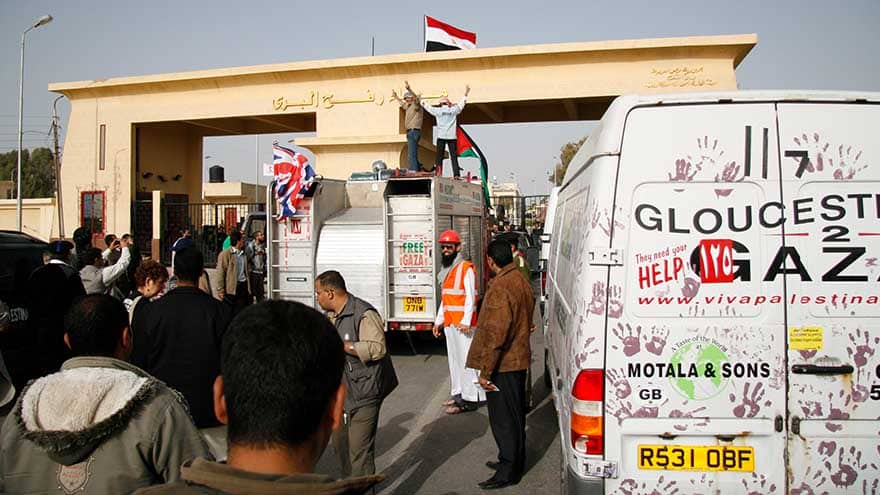The military campaign “Like a Lion,” through which Israel has inflicted significant damage on the core of the Shiite theocratic empire founded by Ayatollah Khomeini, is a historic opportunity to reshape the Middle East and to bring about the creation of a Fertile Crescent—from a Middle East gripped by forces of hatred and rivalry—to a Middle East of regimes cooperating not necessarily out of love for one another, but out of a desire to build and be built. Netanyahu’s Israel, alongside Trump’s America and bin Salman’s Saudi Arabia, can lead the region on a journey similar to that of Europe—from the Cold War era to the European Union.
According to the course of events in Israel’s attack on Iran, and reports on the preceding developments, it may be assumed that the ancient Iranian lion has joined forces with the Lion of Judah—the Cyrus of Persia alongside Zerubbabel—the Israeli government alongside modernist movements in Iran, against the dark forces of fundamentalist Shiite Islam and its allies. Today, Israel faces a historic opportunity to correct the failure that occurred during the reign of the Shah, when Khomeini hijacked the Iranian popular revolution and turned Iran into a theocracy seeking to impose messianic Shiite Islam on the world. Unlike the hesitancy of America under President Carter, Netanyahu’s determination today could return Iran to the arms of the enlightened Iranian people, lovers of moderate and permissive culture, and sever its ties from the imperialistic ayatollahs.
Ayatollah Ruhollah Khomeini believed that the road to Karbala passes through Jerusalem, meaning that the way to lead Shiism over the Arab-Islamic world, and from there to the whole world, would come through an all-consuming fight against the Zionist entity, which would capture the hearts of the masses in Arab states.
Karbala is a city located in today’s Iraq and is sacred to Shiites because it is where Imam Hussein, the grandson of Muhammad, the Prophet of Islam, is buried. Hussein, who challenged the legitimacy of the Umayyad caliphate, was killed by emissaries of Caliph Yazid of the Umayyad dynasty, leader of the Sunni stream, in a humiliating act of beheading. Hussein’s head was sent to the caliph and displayed as a symbol of Yazid’s victory over the Prophet’s family. This event symbolizes the Sunnis’ victory over the Shiites, who since then have been a persecuted minority.
To this end, Khomeini declared the last Friday of Ramadan as Jerusalem Day, marked by demonstrations and sermons emphasizing the city’s importance to Islam and the duty to liberate it from the “Little Satan,” that is, Israel, portrayed as the outstretched arm of Western imperialist evil, headed by the United States and Britain, known as the “Great Satan.”
According to his worldview, Israel—the Jewish state, the enemies of the Prophet and Islam—is operated by oppressive colonialist-imperialist forces whose goal remains unchanged: to dominate the oppressed Islamic peoples of the East. Khomeini despised the Americans, who spoke of democracy but, in his view, sought to exploit natural resources. His successor, Khamenei, saw Iran’s struggle against Israel and the West as a religious-social struggle between oppressors and the oppressed. Together with Qassem Soleimani, he invested Iran’s resources in building a political-military alliance network, at the expense of investing in the Iranian people, who languished in poverty and deprivation, as the Iranian octopus steadily expanded its grip.
In recent years, parts of the Iranian people have tried to escape the regime’s clutches and bring about its downfall—from the Green Movement protests of 2009, through the youth protests of 2019, to the hijab protests of 2022. But no matter how far they went, the regime was perceived as formidable, and no global power came to their aid or challenged it.
Ironically, President Barack Obama, in whom the protesters placed their hopes, turned his back on them, perhaps due to his perception that the Iranian regime authentically represented the oppressed, with whom he identified. At this critical juncture, Obama’s and Khamenei’s worldviews converged—though each interpreted it differently—regarding the duty to fight the colonialist oppression enslaving indigenous peoples.

The Sponsored Proxies Stand Aside
For years, Iran wove its stranglehold on the Middle East by aiding religious and ethnic minorities that were ideologically and religiously close to it. Through financial and military support, it managed to take control of several regional countries—Lebanon, Iraq, Syria, Yemen, and Hamas-controlled Gaza. It armed them and supported them economically, but just when it seemed Iran was about to execute its plan to strike Israel from all fronts, Hamas launched the “Al-Aqsa Flood” operation on October 7, 2023, without coordinating with Tehran. Iran, which believed the entire move should be initiated under its direction, distanced itself, missed the opportunity to lead, and thereby proved even to its allies that it acts solely based on its interests.
Through brilliant strategic thinking, the Israeli government exploited the split between the octopus’s arms and the fact that they failed to act as a united front. Israel operated separately against each tentacle, concentrating its efforts first and foremost on dismantling Hamas, capitalizing on the international legitimacy it had received. Afterward, it turned to Hezbollah, which led to the collapse of Assad’s Syria, to the practical withdrawal of Iraqi militias from the conflict, and confrontation with the Houthi enemy. All the while, Israel managed to strike Iran itself twice, proving to the entire region that Iran is neither invulnerable nor nearly as deadly as it led everyone to believe.
From the moment they were attacked, Iran’s proxies sought assistance in confronting Israel, but their pleas were denied. Iran stood aside, instructing its proxies to fend for themselves in fighting the Zionist enemy, adhering to the Shiite principle of Taqiyya—concealment—according to which ambiguity and the protection of the octopus’s core are more important than defending its tentacles.
Hamas, Hezbollah, and others, who suffered heavy blows from Israel, felt like pawns in the hands of the Iranians. Iran came to be seen as hypocritical and self-serving, reminiscent of the “Munafiqun” sect, the hypocrites mentioned explicitly in the Quran about the Jewish tribes in the city of Medina who fought the Muslims with the encouragement of Arab idol-worshipping tribes but ultimately received no aid from them: “Do you not see those who practice hypocrisy, saying to their brethren among the People of the Scripture who disbelieve: ‘If you are expelled, we will surely go out with you, and we will not obey, concerning you, anyone—ever; and if you are fought, we will surely aid you.’ But Allah testifies that they are liars. Indeed, if they are expelled, they will not leave with them, and if they are fought, they will not aid them.”
This, by the way, is a powerful message that Israel must emphasize now. Iranian hypocrisy has led to the disintegration of its tentacles and their weakening. It also contributed to their decision to stand aside, both from fear of Israel and from a desire to retaliate against Tehran.
It’s no coincidence that Hezbollah units in Iraq and Lebanon are now sarcastically claiming that Iran is such a powerful country and should easily manage on its own against “insignificant threats” like Israel—that, after all, has been Iran’s claim for years. As the biblical verse now comes to life: “Their sword shall enter their own heart, and their bows shall be broken.”
Now is the time to crush the regime’s forces completely and allow the masses and various minorities to rise against it, especially when even Iran’s traditional allies—Russia, China, and Pakistan—are not rushing to its aid. China, for instance, remembers Tehran’s arrogance and the threats it made when Iran demanded recognition of the three disputed islands in the Persian Gulf as Iranian territory. Mighty Russia, which rejected the Islamic Republic’s request for weapons assistance against Israel, has already been burned in the past when it required Iranian military aid, which elevated the Middle Eastern state to a status equal to that of the Russian bear. Pakistan, which has only just finished an intensive military confrontation with India, is not looking for another entanglement.
Another unknown is Turkey’s conduct in the current campaign. President Recep Tayyip Erdoğan is eager to take Iran’s place in the Middle Eastern arena. He has already strengthened his grip in Syria, Libya, Qatar, and other regions. Erdoğan has even labeled Benjamin Netanyahu as the greatest threat to the Middle East and clarified that Turkey will stand “on the side of truth” against Israel’s repressive actions. Foreign Minister Hakan Fidan claimed that the identification of Iranian missile launches is being carried out from an American base in Turkey and even expressed dissatisfaction with it. Additionally, given reports that Kurdish forces in northern Iran are ready for action and awaiting a signal from Israel, it will be interesting to see Turkey’s response, fearing that any such Kurdish independence movement might inspire its substantial Kurdish minority within Turkish territory.
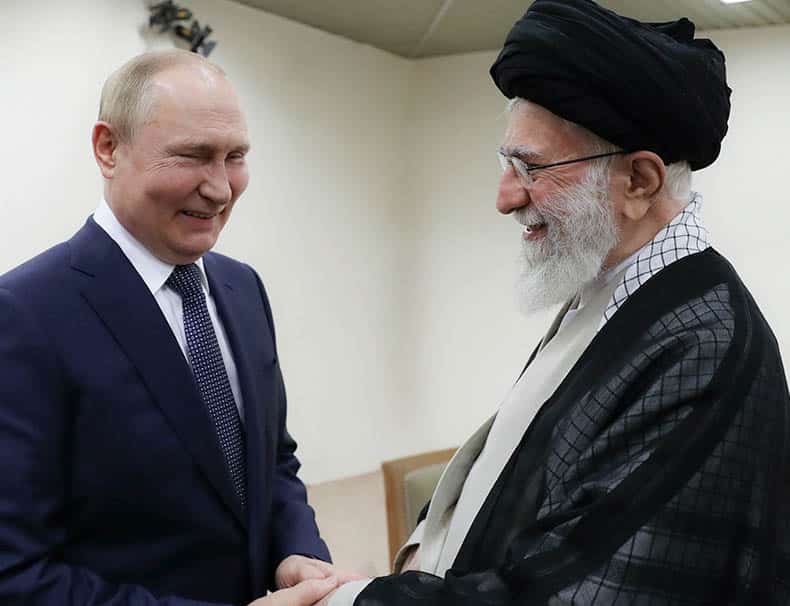
Everyone Wants to Exploit the Regime’s Weakness
The dramatic assassinations of the Revolutionary Guards Commander, Hossein Salami, the IRGC Intelligence Chief Mohammad Kazemi and his deputy, alongside Alireza Soleimani, the commander of the Basij forces (tasked with imposing order in the event of violent uprisings), may mark a turning point in the regime’s ability to confront popular rebellions.
Kazemi was considered one of the central figures in Iran’s security strategy, directly responsible for surveillance and the internal suppression of rebellious movements, as well as assisting Iran’s loyalists in Syria, Iraq, and Lebanon. His elimination is both a moral and practical blow to the Ayatollah regime.
On the day of the attack in Iran, during a gathering with Basij commanders, General Salami projected overconfidence, declaring: “The Basij is the most extraordinary phenomenon in the world, a gift God has given to our nation… One of its features is that it has no limit, unlike all other armed forces in the world, which have boundaries… With the Basij, the longer the battle continues, the greater its power… The fate of great battles is decided on the ground—by the Basij.”
The regime’s reliance on this formidable force to suppress uprisings, just as the Shah once relied on his military power, signals a fundamental misunderstanding of the strength of a popular uprising supported by external forces. The significant blows Iran has sustained have led to a breakdown in discipline among Basij forces and a weakening of the regime’s ability to control remote areas, alongside growing difficulty in responding simultaneously to both the external military threat and the escalating internal unrest.
Alongside the elimination of senior figures, the destruction of launchers, and the evacuation of civilians from Tehran, Israel must continue to strike IRGC bases and weapon depots to weaken the regime’s grip further. Many Iranian citizens yearn to see symbolic blows to the oppressive regime—a move that would erode the resilience of the current leadership.
Time works in Israel’s favor, as the Iranian regime is in retreat and no longer projects strength to its people. And just as the world has been exposed to the dramatic gaps in military capability between Israel and Iran, the same is true in terms of leadership: while Netanyahu concluded his national address with messages reminiscent of Churchill—“The lion’s heart belongs to the nation; the privilege of roaring the lion’s roar has fallen to me”—the Iranian regime, in contrast, broadcasts to its citizens, even if subconsciously, entirely different feelings—of weakness and loss of control.
As this trend continues, the regime’s survival will be increasingly undermined, and Iranian opposition forces, both domestic and in exile, will seize the opportunity to strike. Among these groups are the Mujahideen-e-Khalq, separatist Kurdish organizations, and the Balochi group Jaish al-Adl. The latter even declared that after Israel’s heavy strikes, “The will of God has acted, and a historic opportunity has opened before the peoples of Iran to free themselves from the Ayatollah’s burden.” The group called on ethnic and democratic factions across the country to exploit the regime’s weakness and the tangible damage to infrastructure to spark a domestic uprising and bring about the end of the Islamic Republic of Iran.
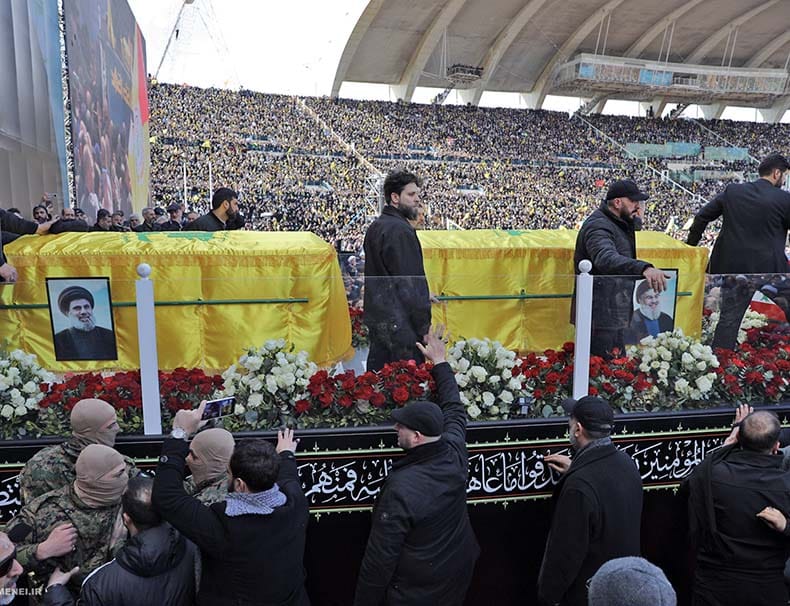
On the Way to Toppling the First Domino
In the Battle of al-Qadisiyyah in 636 CE, the Arab-Muslim army under Caliph Umar ibn al-Khattab and General Sa’d ibn Abi Waqqas defeated the mighty army of the Sasanian Persian Empire, led by King Yazdegerd III and commanded by General Rostam, opening the way to the conquest of Iraq, Iran, and Afghanistan, all under Persian rule. The kingdom’s symbol—the roaring lion—succumbed to the Islamic crescent, much like the roaring lion of the Pahlavi Shah’s regime eventually fell to the renewed Islamic crescent.
It is no coincidence that to this day, the Battle of al-Qadisiyyah is perceived by Iranians as a symbol of their humiliation by the Arabs, the dismantling of their magnificent civilization, and the imposition of Arab-Islamic culture upon them. The rapid fall of the Sasanian Empire is strikingly similar to the phenomenon unfolding in recent months around the periphery of the Iranian Empire. Just as thousands of Hamas and Hezbollah fighters deserted the battlefield, and millions of civilians fled or yearned to flee Lebanon, Syria, and Gaza, so too are Iranian citizens now fleeing their own country. In contrast, the Iranian military and Revolutionary Guards teeter on the brink of collapse.
The forces Iran fully funded are evaporating before the eyes of the sinister regime, first and foremost, the Iranian army and the Revolutionary Guards. Just as Yazdegerd III and his general Rostam were defeated, so too must Khamenei and the heads of the IRGC and the Iranian military be vanquished. The moment Khamenei gave Hezbollah fighters the green light to target the home of Prime Minister Benjamin Netanyahu—a chess maneuver of “king destruction”—he sealed his fate. Just as Israel eliminated the heads of the octopus’s arms, it must also do the same to Khamenei, who has repeatedly called for Israel’s annihilation.
Israel is now on the path to toppling the first domino of the Iranian regime. If the popular uprising erupts and succeeds, we may witness a dramatic shift in the balance of power in the Middle East. Given that the momentum is currently on Israel’s side, it must continue to apply pressure on the Houthis, who have lost their “mothership,” and ensure that the legitimate Yemeni government and the Southern Transitional Council fight them uncompromisingly. At the same time, Israel must continue to weaken Hezbollah and decisively defeat Hamas.
No Half Measures – Only Complete Surrender
Israel must emphasize, both in words and in actions, that it holds no animosity toward the peoples surrounding it. On the contrary, Israel operates in the fields of development and resource improvement, transforming bitterness into sweetness, and even producing water from thin air. Water is a scarce resource in the arid Middle East, just as progress, reconciliation, and development are pushed aside by evil regimes from Iran’s school of thought and fundamentalist Sunni Islamic movements.
Most importantly, Israel must not repeat the mistake of King Ahab, who showed mercy to Ben-Hadad of Aram and sought to placate him after his defeat. Ben-Hadad—like Khamenei and Salami—boasted and bragged about his strength, declaring: “May the gods deal with me, be it ever so severely, if enough dust remains in Samaria to give each of my men a handful.” Ahab responded, “One who puts on his armor should not boast like one who takes it off.” Yet after Aram’s army was defeated and Ben-Hadad fled into hiding, Ahab spared him and his people and treated them mercifully. Ben-Hadad regained strength and, years later, defeated Israel’s army and killed Ahab on the battlefield. Therefore, the entire Iranian regime—from its leaders to its last soldier—is deserving of death, and only its complete surrender and departure from power in Iran are acceptable, for the leopard will not change its spots.
We must remember that the Iranian regime, like the Houthi terror organization, Hamas, and Hezbollah, has sworn to bring death upon the Zionist entity and the Jews. This is not the time for reconciliation or negotiations. With proper effort, the Abraham Accords can expand, and a post-Ayatollah Iran, a post-Houthi Yemen, and an independent Lebanon could all become part of the normalization process with Israel.
You may say, of course, that Saudi Arabia will continue to press for the establishment of a Palestinian state. Still, in my view, the Palestinian issue and the Iranian empire are both heading for the storeroom of history. The Palestinians have led their young nation down a path from self-determination to the perpetuation of refugee status. At the same time, the Islamic Republic of Iran has paved the way for the creation of a modern Iran.
A new Middle East seems within reach – but only if we internalize that victory belongs to the persevering, as Napoleon Bonaparte once said.
